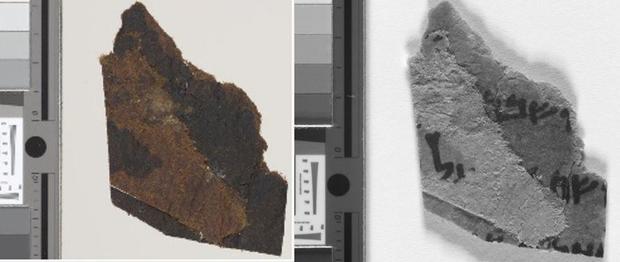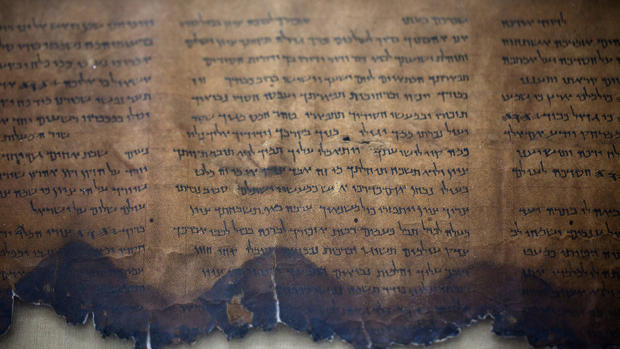A collection of Dead Sea Scroll fragments, once thought to be blank and "relatively worthless," have been kept in boxes at The University of Manchester in England for over two decades. A professor recently examined the fragments and discovered some had text all this time, it was just practically invisible to the naked eye.
King's College London Professor Joan Taylor unearthed the hidden text while taking part in a study held at the college, according to a press release from the University of Manchester.
"Looking at one of the fragments with a magnifying glass, I thought I saw a small, faded letter - a lamed, the Hebrew letter 'L'," Taylor said, according to the Friday release. "Frankly, since all these fragments were supposed to be blank and had even been cut into for leather studies, I also thought I might be imagining things. But then it seemed maybe other fragments could have very faded letters too."
Taylor followed her hunch and utilized multispectral imaging to photograph all the fragments that looked blank to the naked eye and measured more than once centimeter, according to the release.
"With new techniques for revealing ancient texts now available, I felt we had to know if these letters could be exposed," Taylor said in the release. "There are only a few on each fragment, but they are like missing pieces of a jigsaw puzzle you find under a sofa."
Of the 51 fragments imaged, four were found to have readable Hebrew/Aramaic text written using carbon-based ink. In addition to the text, the study unearthed "ruled lines and small vestiges of letters" on additional fragments, according to the release.
One notable fragment holds the remains of four lines of text with 15 to 16 letters. While most of the letters are only "partially preserved," the word Shabbat, or Sabbath, is able to be "clearly read." The release stated the text could be related to the biblical text, Ezekiel (46:1-3)
The Dead Sea Scrolls, which were found in Judean Desert caves in the mid 20th century, are a collection of 2,000-year-old texts which include early iterations of the Hebrew Bible.
In recent years, forgeries of the artifacts appeared on the antiquities market and have even been discovered on display at a museum. However, the university stated the small fragments being studied were obtained during the official excavations of the caves and never passed through the market.
The scroll fragments were given by the Jordanian government to a leather expert at another English university for study in the 1950s, before being donated to The University of Manchester in 1997. The fragments were stored in the university's library ever since and "have been relatively untouched" until now, according to the release.
The research team on the study is now investigating the fragments further as part of a larger project, and the results will be published in an upcoming report, the release stated.
World - Latest - Google News
May 21, 2020 at 09:06AM
https://ift.tt/2zeXpOg
Dead Sea Scroll fragments believed to be blank for decades reveal text nearly invisible to the naked eye - CBS News
World - Latest - Google News
https://ift.tt/2SeTG7d
https://ift.tt/35oCZy1
Bagikan Berita Ini
















0 Response to "Dead Sea Scroll fragments believed to be blank for decades reveal text nearly invisible to the naked eye - CBS News"
Post a Comment